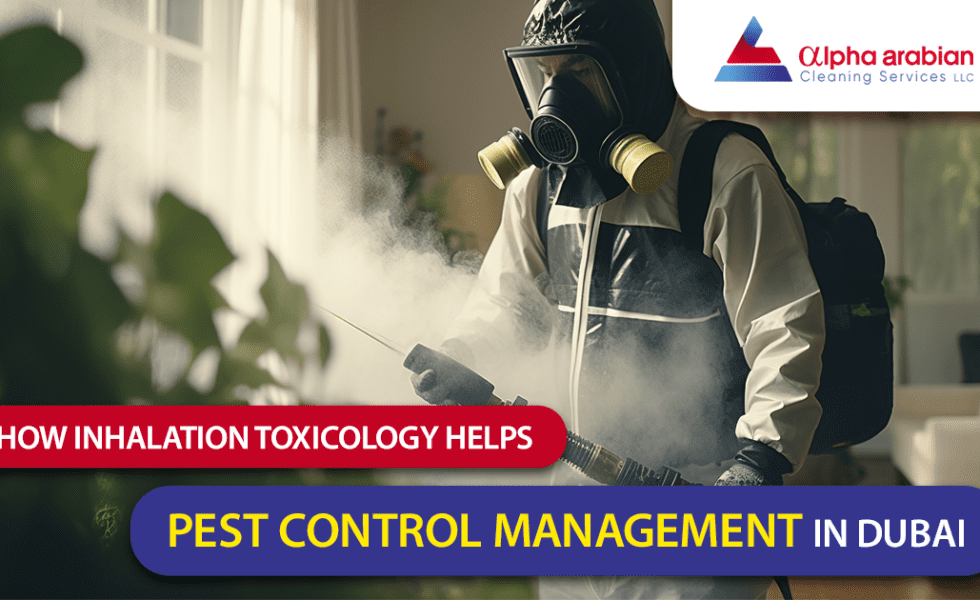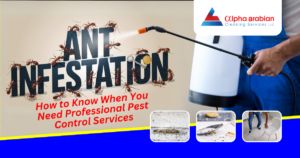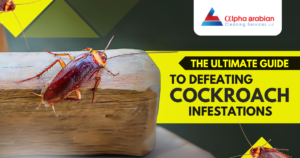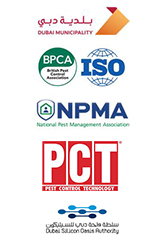How Inhalation Toxicology Helps Pest Control Management in Dubai
In Dubai, understanding inhalation toxicology is critical for pest control management. This field of science delves into the adverse effects of inhaling various compounds in the environment, making it particularly relevant to the pest control industry. Using insights from inhalation toxicology, companies offering pest control management in Dubai, such as Alpha Arabian, provide fumigation services.
In this article, we explore the significance of inhalation toxicology in Dubai’s pest control and fumigation services.
What is Inhalation Toxicology?
Inhalation toxicology is the scientific study of the harmful effects caused by inhaling substances present in the air. It stands out due to its heavy reliance on exposure technology and the unique anatomy of the respiratory system. Precise control over exposure parameters, including physical format and concentration, is crucial to ensure effective lung penetration of these substances.
Why Inhalation Toxicology Matters
Due to its intricate structure and function, the human lung efficiently absorbs inhaled materials. Disruptions to the body’s vital systems can cause minor irritations or life-threatening conditions. Hence, understanding factors that can modify lung function is crucial.
Why Pesticides and Inhalation Toxicology?
Pesticides play a pivotal role in pest control management, and they can enter the atmosphere at various stages, from manufacturing to application and waste disposal. One major route for pesticide distribution is through airborne particles, often originating from drift during application and post-application volatilization. In Dubai, exposure to pesticides through inhalation is widespread, as protective measures are often lacking. Thus, comprehending the consequences of inhaling pesticides becomes imperative.
The Consequences of Inhaling Pesticides
Before delving into the effects of inhaling pesticides, it’s essential to grasp the basics of the mammalian respiratory system. This system comprises three major components: nasopharyngeal, tracheobronchial, and pulmonary, each serving specific functions to protect and facilitate respiration.
Foreign particles and gases can cause various injuries, including acute pulmonary injury, conducting airway effects, peripheral airway effects, chronic airway diseases, fibrotic lung diseases, and lung cancer.
Examples of Potential Inhalant Toxicants: Fumigants
Fumigants are a diverse group of pesticides, including methyl bromide, ethylene dibromide, dibromochloropropane, and phosphine. These fumigants are highly volatile and capable of rapid diffusion. When inhaled, they disrupt critical cellular functions, resulting in various toxic symptoms.
Methyl bromide: Symptoms may include chest pain, difficulty breathing, pulmonary edema, bronchopneumonia, congestion, and hemorrhage.
Ethyl dibromide: Inhalation can lead to headaches, respiratory irritation, liver and kidney damage, respiratory failure, pulmonary edema, and even death. Ethyl dibromide is also a recognized animal carcinogen.
DBCP: Inhaling DBCP may result in nasal cavity carcinomas and lung tumors.
Phosphine: Symptoms may include hypoxia, mucous membrane irritation, tracheobronchitis, pulmonary edema, airway sensitization, cancer of the hematopoietic system, and death.
Methodology of Inhalation Toxicology
Inhalation toxicology experiments aim to create controlled environments where test subjects, typically experimental animals, are exposed to a fixed concentration of the test material in suitable formats. Various exposure methods, such as whole-body, head-only, and nose-only exposures, are employed to evaluate the effects of materials as they enter following respiration.
Expressing the dosage for inhalation experiments is a complex task, as it depends on concentration and time. Proper dosimetry and exposure characterization are essential for the assessment of potential health risks.
Effectiveness of pest control and fumigation services in Dubai
Inhalation toxicology plays a crucial role in ensuring the safety and effectiveness of pest control management and fumigation services in Dubai. It provides valuable insights into the consequences of inhaling pesticides, helping pest control companies like Alpha Arabian to protect the health of their personnel and the environment. As Dubai continues to evolve, the study of inhalation toxicology remains vital in guaranteeing the well-being of its residents and maintaining a safe and improved environment for all.






